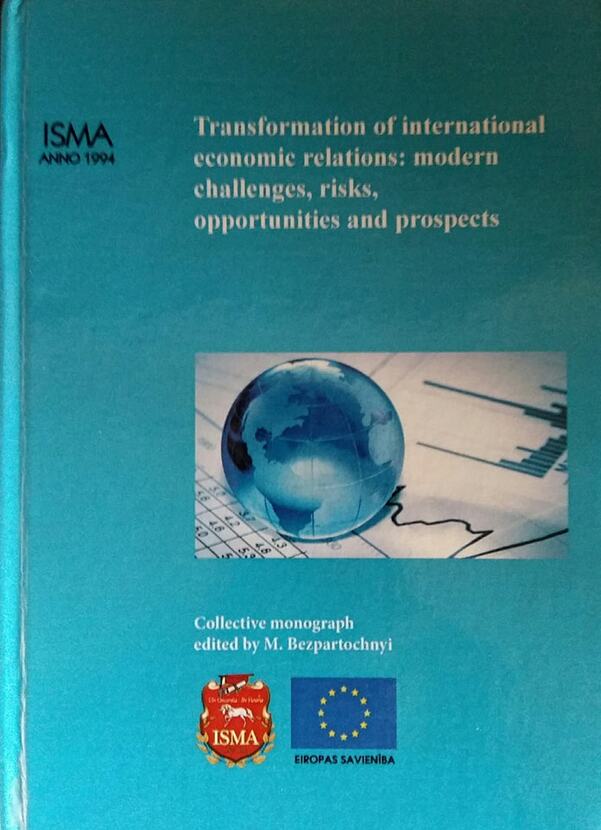
Transformation of international economic relations: modern challenges, risks , opportunities and prospects
Научни и учебни издания
Описание
Групова монография
Научни редактори: prof. Maksym Bezpartochnyi (ISMA University, Riga, Latvia), Olga Lukashina (Dr. oec., Professor, Expert of Latvian Academy of Sciences, Riga, Latvia), Mariana Petrova (PhD, Assoc. Prof., Director of Education Technologies Center, St. Cyril and St. Methodius University of Veliko Turnovo, Bulgaria)
Издател: Informācijas sistēmu menedžmenta augstskolaq Rīga (Latvija) - «Landmark» SIA
The authors of the book have come to the conclusion that it is necessary to effectively use the management approaches to regulate modern international economic relations, methodological tools for analyzing international competitiveness, to develop and implement business strategies. Basic research focuses on assessing the effectiveness functioning of offshore territories, identifying factors that influence on foreign direct investment, researching the processes of international labor migration, the consequences after accession of individual countries to the European Union, improving accounting and non-financial reporting, legal regulation of international economic relations and the implementation of international law in some countries. The research results have been implemented in the different models of managing economic risks, internationalizing business, forming clusters, ensuring national security. The results of the study can be used in decision-making at the level of international business, ministries and departments that regulate international relations, ensuring security and overcoming risks. The results can also be used by students and young scientists in modern concepts of the formation of international economic relations in the context of strengthening European integration processes and globalization of the economy.
Chapter 3 CURRENT TRENDS OF INTERNATIONAL LABOR MIGRATION AND REFUGEE PROBLEMS
Integration and promote tolerance towards immigrants in Bulgaria, pp 114-124
Mariya Ivanova
This paper aims to present the level of readiness of Bulgarian institutions to adequately solve integration related problems, as well as the effectiveness of tolerance and solidarity promotion mechanisms towards immigrants in Bulgaria. The idea is prompted by changes in the EU regulatory framework and the increasing the number of immigrants in Bulgaria. This paper examines the impact of international initiatives and EU directives on Bulgarian legislation and practices for integration of immigrants. The impact of the legislative framework in Bulgaria on local policies to promote tolerance toward diversity has been analyzed. An empirical study was conducted by analyzing statistical data, questionnaires and in-depth interviews of key stakeholders - employers and immigrants – on integration issues and causes.
